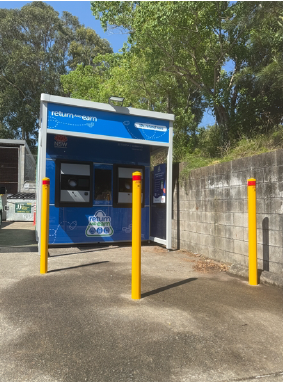NSW taxpayers footed a bill of $29 million to destroy irreplaceable native forests last year, raising the total public cost to more than $50 million in three years, as calls for a cessation in native forest logging and a transition to a full plantation-based industry grow louder.
Released quietly on Friday afternoon, the 2024 Forestry Corporation Annual Report revealed the extent of the financial woes to its native forest logging operations, reporting a $29 million loss to its Hardwood Forests Division in 2023-24 as the balance sheet of its operations worsens.
The commercial viability of native forest logging in NSW is falling at an alarming rate with this year’s shortfall almost double the loss of the previous year. Native forest logging was $15 million in the red in FY23, after posting a loss of $9 million in FY22. Compounding the financial performance of native forest logging, Forestry Corp’s annual report deemed its hardwood assets as being fully impaired, meaning they have no financial value.
"These results confirm what we've long known - native forest logging is an economic and environmental failure that survives only by reaching deep into the pocket of taxpayers," Dr Ken Henry, ACBF chair, said. "Most taxpayers would be appalled to learn that they paid $29 million last year for the privilege of destroying native forests and endangering koalas and gliders.”
While the report reveals significant losses for the native forest division, the corporation's plantation operations returned a profit of $22 million, highlighting the viability of transitioning to reliable timber production.
“What’s even more appalling is that a lot of these native trees are felled for export woodchips. This economic and environmental failure for such low-value products. We have to find a better way,” Henry said.
"We need to confront reality and establish a proper plan that fosters sustainable plantation timber and forest management jobs. With foresight, we can protect and restore our native forests while also building strong and dependable jobs for regional communities.”
The 2024 Forestry Corporation Annual Report also documents multiple regulatory breaches and enforcement actions:
- A conviction for breaching environmental protections in Mogo State Forest, where four hollow-bearing trees essential for wildlife habitat were illegally felled
- A $500,000 enforceable undertaking after contractors harvested 17 trees from protected Riparian Exclusion Zones in Coopernook State Forest
- Convictions for breaches in Bagawa and Nadgee State Forests
- Additional convictions recorded for breaches in Yambulla State Forest
ACBF supports the implementation of the Improved Native Forest Management (INFM) carbon method. Led by the NSW Government as the proponent, INFM will protect and manage public native forests, as we move from native forest logging to a full plantation-based timber industry.
Recently approved for further development by the federal government, INFM modelling shows the method will deliver significant revenue through additional sequestration of carbon, funding permanent jobs in forest management that will ensure native forests are better managed, more resilient to hazards and remain habitats for our iconic species.
“Our native forests are much more valuable to us by storing carbon. Through the Improved Native Forest Management method proposed by the NSW Government, native forests can store an additional 1.5 million tCO₂ per year, delivering up to $2.6 billion in revenue over 15 years that will fund 1700 new jobs in forest management,” Henry said.
- ENDS -
Dominic Bossi | Media Advisor
E: [email protected]
P: 0404030665
https://www.climatebiodiversi


